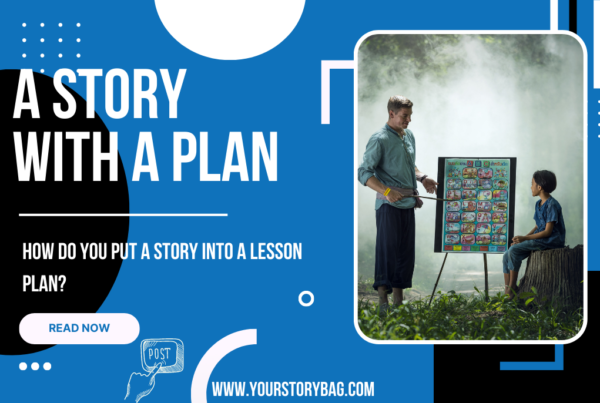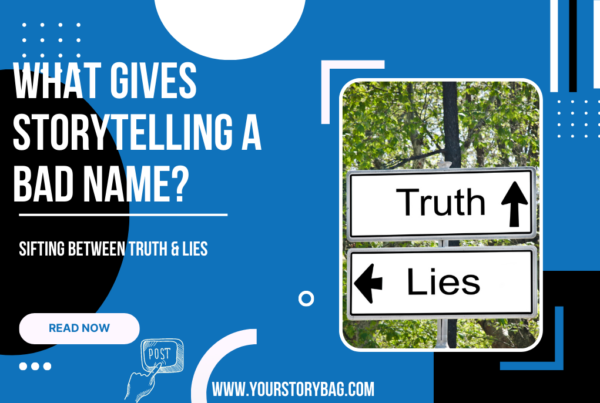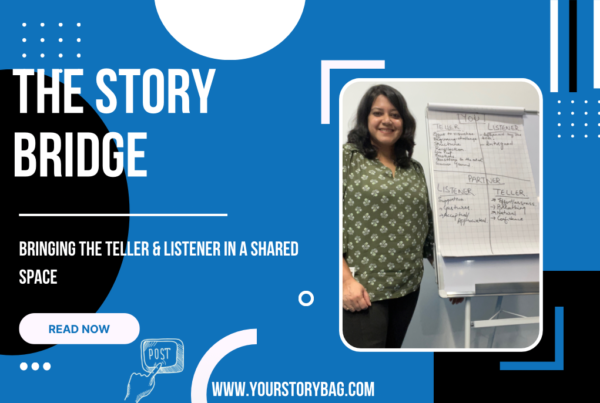
“Boss is calling you!” someone yelled out of the daily editorial meeting.
I wasn’t fond of the editorial meeting. They lumbered through the day and I felt it was a waste of of time. Being called into one wasn’t usually a good thing! Chances are that you’d be roasted for something or the other. I gathered up my armour and dragged my feet to the editorial meeting.
Someone swung open the door and my then ‘Boss’ boomed across the video-conference, “There she is!! I want all of you to learn how to tell a story from Rituparna! Did you watch her show for 26/11? Fantastic writing!”
I saw all eyes turned towards me! I wish I was invisible! Being appreciated for one’s #storytellingskills in television was so rare that it could easily make you the most hated person in the newsroom!
I spent 9 years as a television journalist & producer. Today it seems like a previous birth. But I have to be honest…That is a part of my life that I remember fondly for the kind of storytelling that I did back in the day.
One of the highlights of a being a storyteller dappling in the visual media is that you learn to extract stories that are hidden. You become something like a sniffer dog, sniffing out a good story, digging & extracting it, piecing it together with diverse perspectives and then packaging it for viewing. Only because it is a terrific story! Some of my latter scripts didn’t have any voice overs! A voice over is integral to a script as it serves as a bridge between what I wanted to say as the journalist and that which my guests on the show. I hard perfected my storytelling such that I could take away the voice overs and let my guests toss the story between them!
In that way, the teller (that is me) became invisible for a moment.
Finding my identity & purpose as a Storyteller
However, my best years as a a storyteller were yet to come. I was yet to fully understand the power of stories and what I was meant to do! When I quit television, I was clear that I wanted to utilise my storytelling skills. The question was, which path would I take?
Who needed a former-journalist turned storyteller? I looked up standard communications roles and nothing excited me. I wanted to tell stories that no one told…so what could it be? I was clear that I didn’t want to continue in journalism. The tides had turned by then and storytelling in media was quickly becoming a bad word!
So what was the alternative?
That’s when I found it!
I wanted to tell stories because they ought to be heard.
I wanted to become invisible as the storyteller, so people could tell theirs.
I wanted to make storytelling to be the tool that could change people’s lives and impact the way they interacted with the world.
I wanted to continue pursue non-fictional storytelling, because it held the clue to our world.
And so right from our first corporate client, HCL, to all other clients we have leaped into storytelling projects that have allowed us to work with real people and real stories.
We spent 2 years with Dhriiti – The Courage Within, telling stories of powerful women entrepreneurs across the country. We gathered stories of employees to craft growth stories for Accor’s onboarding module. We have worked closely with WWF-India to tell compelling stories for the sake of environment. With Save the Children, we have crafted an entire storied module to ignite the minds of youth leaders.
Non-Fictional Storytelling is Powerful!
As much as our brain craves for fiction, reality, is honestly, stronger than fiction! Today we see many social media handles & creators package ‘inspirational & transformational’ stories through reels and video. We see people use #personalstories to their advantage to tell the world about who they are.
I strongly believe that storytelling will be the strongest currency in the world. We are just waking up to the impact of what a story can do. I said this in TEDx talk 4 years back!
And I am not the only one.
Writer Jonathan Gottschall in his new book The Story Paradox says the same thing. I am waiting to get my hands on to this one, but knowing Jonathan’s passionate approach to storytelling from his first book The Storytelling Animal, I completely agree with what he is warning us about. Jonathan says that we must be aware of the dangers of narrative transportation & narrative persuasion. Every time you listen to a story, you are naturally drawn into the narrative, so you go searching for yourself in the story you consume. Narrative persuasion is the impact of the narrative where you begin to align with the beliefs & behaviour of the people in the story. While narrative transportation & persuasion are scientifically proven, what is more critical is how you deal with this knowledge?
You can hear Jonathan Gottschall speak about The Story Paradox and the Positives & Perils of Storytelling in this HBR Podcast
What’s unique about The Tellers’ Company?
If you know your story can really impact the audience and alter their relationship with their environment, what would you do?
Would you ignite minds to manipulate them?
Or would you liberate them by telling the story that has not been told?
What if… You could gather, capture & tell stories that deserve to be TOLD?
Your stories could give voice to the mute? Your stories throw the spotlight where no one wants to go?
Your stories tell the truth & crush misinformation? Your stories could change the world? Would you care to tell those stories?
This is the genesis of The Tellers’ Company.
Each of our programs are deeply rooted in our belief that stories can and must be used ethically in the world. We believe that stories can change the world & we need storytellers who are brave enough to do that.
As a program, The Tellers’ Company will grow from a webinar, to a workshop, an e-learning course, to a cohort-based program with guided mentorship from experts.
Our objective is to partner with schools, organisations & communities who believe in using stories for change.
We hope our storytellers would understand the dynamics of multi-media storytelling
We hope our ethical storytellers would implement projects that enable SDGs or change
Our vision is to enable youth storytellers to make the best use of the creator economy to tell stories that deserve to be told.
The Tellers’ Company is NOT a Journalism Course
About 4 years back, I was invited to Zee Media to conduct a storytelling workshop with their newsdesk. This was a complete circle for me! 4 years back I met someone who was familiar with the work I did in television and even though for a brief moment I was relieved that good stories survive the test of time. What we see in news today is the death of journalism and honest storytelling!
The program is open to media students & professionals in sales, marketing, branding & communications. But it is NOT a journalism course. Will The Tellers’ Company replace a media course ever? Maybe it can…but does anyone want to be a storyteller in the media today?
Who cares? We are building are own community of purposeful storytellers, are you one of them?
Head over to The Tellers’ Company and enrol for our next workshop and / or stay updated.







This web site is really a walk-through for all of the info you wanted about this and didn’t know who to ask. Glimpse here, and you’ll definitely discover it.